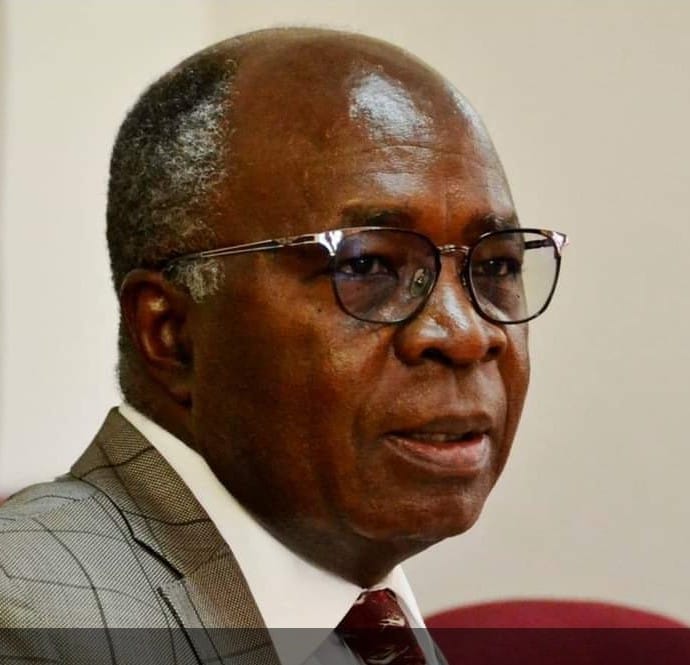Minister of Finance Dr. Situmbeko Musokotwane has told Parliament that Zambia’s external debt as at 31st January 2023 stood at USD13.96 billion, representing a 7.04 percent increase from USD13.04 billion posted in December 2021
In a Ministerial statement on the performance of the economy as at 31st January, 2023, Dr. Musokotwane said the increase in External Debt stock can be attributed to continued disbursements on existing project loans, mostly from multilateral institutions and bilateral creditors to finance on-going priority projects.
In the 29th March 2023 statement, the Minister of Finance addressed matters relating to developments in the global economy, performance of the Government Securities, budget performance and domestic economy.
On the local economy, Dr. Musokotwane said although the domestic economy is expected to face challenges associated with global developments, it is envisaged to remain resilient.
“The stock of Central Government external debt (excluding publicly guaranteed debt) as at end December 2022 stood at USD13.96 billion, representing a 7.04 percent increase from USD13.04 billion as at end December 2021. The increase in External Debt stock can be attributed to continued disbursements on existing project loans, mostly from multilateral institutions and bilateral creditors to finance on-going priority projects. Publicly guaranteed debt was USD1.45 billion as at end December 2022, declining by 5.14 percent from USD 1.53 billion at end December 2021. Madam Speaker, Arising from unsustainable debt levels and commencement of the debt restructuring process, the Ministry has continued implementing the debt service standstill to all creditors with the exception of multilateral creditors and priority projects. In this regard, USD 130.77 million was paid as debt service as at end December 2022. The debt service standstill also led to a 46.86 percent increase in Central Government arrears to External Creditors to USD 4.06 billion (being principal and interest) as at end December 2022, from USD2.16 billion recorded at end December 2021,” Dr. Musokotwane stated.
He said the Government is optimistic that the long-term sustainable path for the agro-sector is a reform of the Farmer Input Support Programme.
“Allow me to begin by reaffirming to this house that our ambition as a nation remains to achieve our medium-term targets of providing economic opportunities to all Zambians and becoming a middle-income country that is at the forefront of supporting the global energy transition and food security. The Government is optimistic that the long-term sustainable path for the agro-sector is a reform of the Farmer Input Support Programme, including migration to the e-Voucher, and more comprehensive farmer support such as scaling up extension services. Inflation was recorded at 15.1 percent in January 2022 and closed the year at 9.9 percent in December 2022. On an annual basis, inflation averaged 22.1 percent and 11.1 percent in 2021 and 2022 respectively. The continued slowdown in the inflation rate as at January 2023 was attributed to movements in prices of food and non-food items and the base effect. The appreciation of the Kwacha in the year 2022 was also among the drivers for the slowdown in Inflation. Risks to the positive movements in the inflation rate are identified and include: Tighter global financial conditions, Spillover effects from the global economy owing to the Russia-Ukraine conflict. The impact of load shedding on economic activity and an increase in energy costs.”
On budget performance, Dr. Musokotwane said:”Total Revenues and Grants During the period under review, total collections of Revenues and Grants amounted to K9.2 billion and were 13 percent below the projection target of 10.4 billion. Tax Revenue accounted for K8.0billion, Non-Tax was K1.2 billion and nothing came from Grants. Income tax collections amounted to K4.9 billion against a target of K6.2 billion and were below target by 21percent. The underperformance was mainly attributed to lower than anticipated provisional tax declarations by the mining companies. i) Company Tax collections amounted to K2.2 billion against the target of K3.7 billion representing a negative collection variance of K1.4 billion or 39 percent below collection. Mining Tax- Mining tax amounted to K662 million and was below the target of K2.3 billion. The underperformance was mainly attributed to lower than projected profitability of major mining contributors. Non-Mining Tax-collections amounted to K1.6 billion against the target of K1.3 billion. The performance was attributed to intensified enforcement activities that included effective monitoring. Further, the increased sale of Government Securities also contributed to this positive performance.”
Dr. Musokotwane affirmed that the Government will continue to undertake growth enhancing programmes.
“In conclusion, economic performance in 2022 was generally fair; however, more needs to be done in 2023 and the medium-term, especially given risks such as a possible downturn in the global economic environment and resurgence of pandemic. Although the domestic economy is expected to face challenges associated with global developments, it is envisaged to remain resilient. Government will continue to undertake growth enhancing programmes, while mitigating to the fullest extent possible, the adverse spill-over effects from the current uncertain global reality. Undertaking reforms to unlock barriers will be key, especially in the agriculture and energy sectors. Enhanced collaboration with the private sector is also of paramount importance,” Dr. Musokotwane
